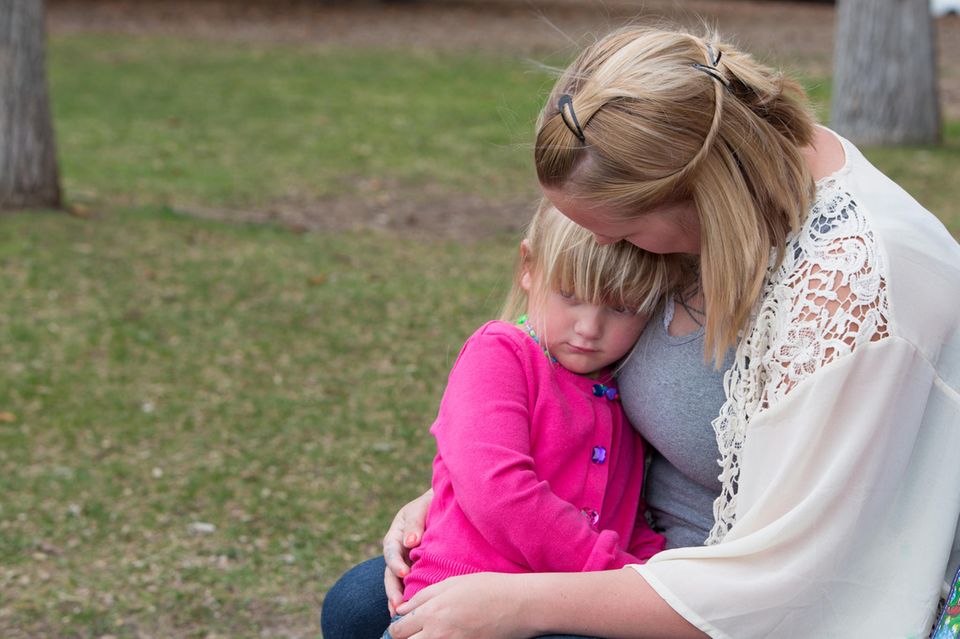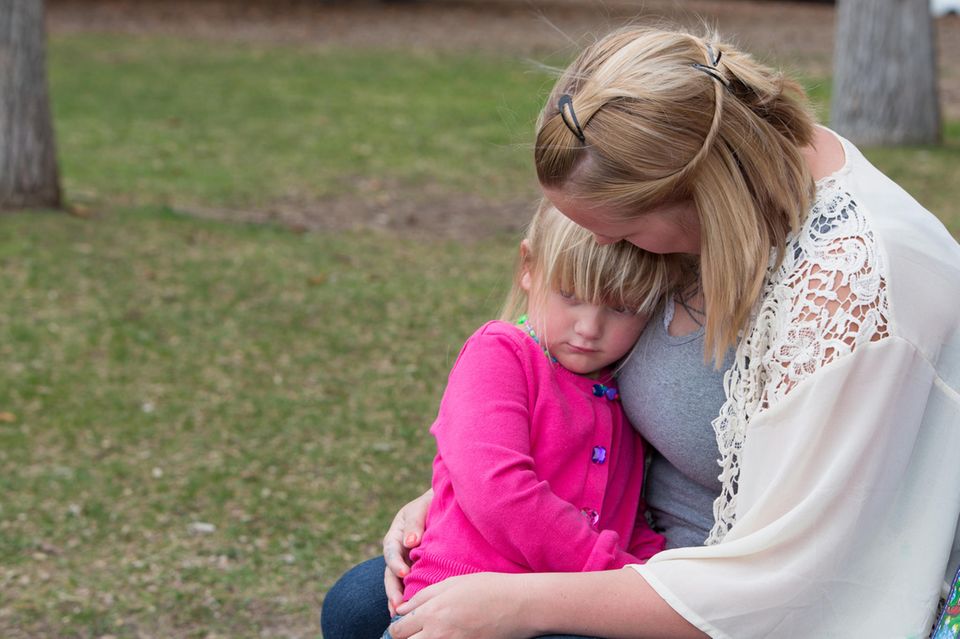Death is not an easy subject. But it is something that every human being has to deal with. Dying is part of every life. However, it can be difficult to talk about if parents are not prepared. We explain how you can react.
How we know death is very different. there can in our environment or through the experience of friends encounter. Can a unexpected death to be or something we’ve been preparing for a while. For example a long illness or old age. However, it’s not easy for many people to talk about the topic. Especially with children, parents are often not sure how best to discuss it. Like her on the one hand light upon the other hand but do not worry.
If a person dies in your environment, the question of death is not far off. Another is usually whether you yourself will die as a parent. After all, a large part of the life of the little ones revolves around parents and the trust they can count on us. But how should you react as a parent? Two Psychology Today experts explain how families can best cope with death.
Be honest about death
One open approach Psychiatrist Elena Lister and psychologist Michael Schwartzman explain in their article that dying matters. Because it can strengthen the bond between parent and child and make it more resilient, as it is better armed with knowledge in the case. But it also means being honest compassionate to be. For your child, the thought can be something completely new, something troubling and abstract that can trigger many feelings.
For general advice on talking about death, see:
In addition to fear, death can also trigger anger, sadness, numbness, or even relief. Therefore, your child should know about it that death many feelingsif not all in the different stages of mourning. If the matter of your death catches you off guard, experts recommend communicating it openly.
If your child asks you, “Mom, are you going to die too?” it can be helpful to look inward first and answer, “That’s a good question and I want to think about it for a moment before answering you.”
Just a few minutes of conversation can often help you feel more confident. Then take the time to breathe deeplyif you need it.
“Will you die too?”
If your child asks this question, experts recommend not choosing abstract words. A good start is to let your child understand that under normal circumstances your life is far from over. For example, you could say:
I intend to live a very long time. I take care of my body by eating healthy, exercising and getting enough sleep. I also pay attention to what my doctor tells me.
This is a first step in removing initial fears. However, there is obviously no definitive answer, because it still doesn’t clarify the original question. The probability that your child will ask again is high. Lister and Schwartzman recommend the following words:
One day I will die and you will be much older. You will be able to prepare and you will not be alone. It seems that you have already thought a lot about it. Have more questions?
Give your child the space to enter himself and make it clear to him that it can always occur to you to talk openly about the topic. If you have any other questions, please take the time to answer them calmly. Abstract paraphrases such as: “If he is gone from us” cannot be understood very well by children. So be as clear as possible when talking to your child about death and dying.
It’s okay to be overwhelmed
If the sudden death of someone close is the reason your child is asking these questions, know that it can be overwhelmed. Even if death was predictable. Then Saying goodbye and dealing with a loss is never easy. We can’t always be strong and your child can learn from your pain too. If you need help, there are many grief centers that work with children or young people. There they learn how to deal with a loss. There are also organizations that family bereavement counseling offer. Be aware: You are not alone with such experiences.
Before the topic of death comes up in your family, circle of acquaintances or friends, you can already learn to die with the help of children’s books:
books for children
Comforting books about death and dying
Sources used: Psychology Today, Marie Curie, “LÖWENZAHN” Center for Bereaved Children and Young People, Lavia Family Lutto Support





